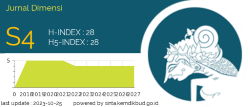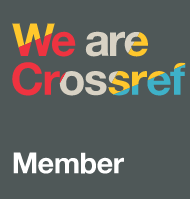Effect Size Of Pakem Model Implementation In Mathematic Learning On Improving Student’s Problem-Solving Mastery On Function Material At Junior High School
Abstract
Full Text:
PDFReferences
Cohen. J, “A Power Primer”. Psychological Bulletin, 112, 155-159, 1992
Daryanto, Inovasi Pembelajaran Efektif. Bandung: CV Yrama Widya, 2013
Kurniawan. Rudy, Peningkatan kemampuan pemahaman dan pemecahan masalah matematis melalui pembelajaran dengan pendekatan kontekstual pada siswa sekolah menengah kejuruan. unpublished.
Rahmaniar. A et al, “Ukuran Pengaruh Pendekatan Interactive Conceptual Instruction pada Pembelajaran Fisika untuk Meningkatkan Pemahaman Konsep Usaha dan Energi Siswa SMA”, Prosiding Simposium Nasional Inovasi dan Pembelajaran Sains 2015 (SNIPS 2015) hlm (261-264), Bandung: UPI Press 2015
Rusman, Model-Model Pembelajaran Mengembangkan Professional Guru, Jakarta: PT Rajagrafindo Persada, 2010
Susanto, Hadi, Penilaian Berbasis Kelas, Yogyakarta: Kanisius, 1992.
Wardhani. S dan Rumiati, Instrumen Penilaian Hasil Belajar Matematika SMP; Belajar dari PISA dan TIMSS, Yogyakarta: Kemdiknas, P4TK Matematika, 2011
DOI: https://doi.org/10.33373/dms.v5i3.55
Refbacks
- There are currently no refbacks.











